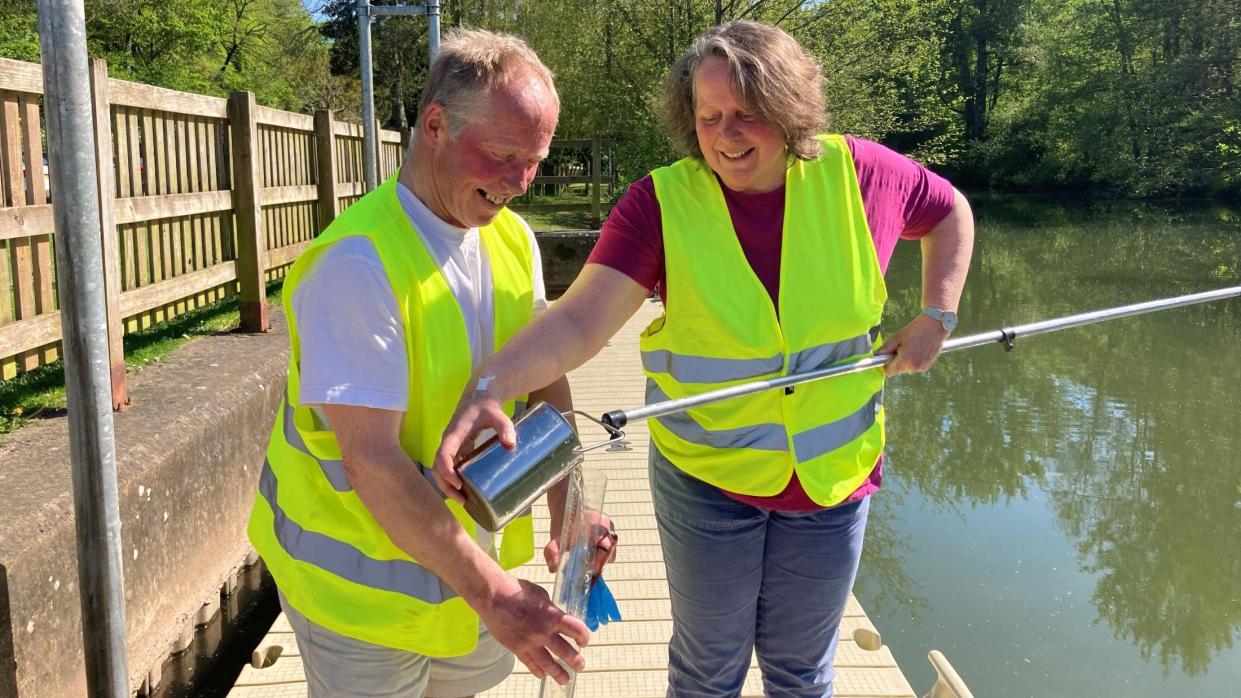River campaigner seeks pause on new chicken farms

A river campaigner is calling for a pause on planning permission for intensive chicken farms in Shropshire over concerns animal manure is contributing to water pollution.
A number of farms have been given permission to expand in recent years and four new sites could be approved shortly.
“We should be taking stock and finding out what the situation is, before we carry on giving them permission,” said Alison Caffyn, a volunteer for the Severn Rivers Trust.
The National Farmers Union said it recognised there were challenges and farmers were “working hard” to prevent issues that contributed to water pollution.
Ms Caffyn and other trained volunteers have been regularly testing Shropshire’s rivers to monitor levels of phosphates, nitrates and sediment.
She said these groups had found high phosphate levels at times in the River Teme and River Clun, adding that farm pollution was likely to be playing a big role, as well as human sewage.
"We have the second highest number of chicken farms in any county in the UK, and the manure that those chickens produce is really high in phosphate,” she told BBC Radio Shropshire.
'Chemical cocktail'
A 2022 parliamentary report said agriculture and water companies were the biggest contributors to the “chemical cocktail” in England’s rivers, and also mentioned intensive chicken farming as a particular concern.
High levels of phosphates and other nutrients in rivers can cause algae to grow more intensively, which can prevent oxygen entering the water and suffocate life beneath the surface.
Ms Caffyn added this year’s heavy rainfall could make it even more likely that animal manure, as well as soil, was being washed from fields into rivers.
The National Farmers Union said: “We recognise there are challenges and farmers are working hard, through a range of voluntary measures and government schemes, to prevent the loss of valuable nutrients and soil which contribute to water pollution.”
Follow BBC West Midlands on Facebook, X and Instagram. Send your story ideas to: newsonline.westmidlands@bbc.co.uk

